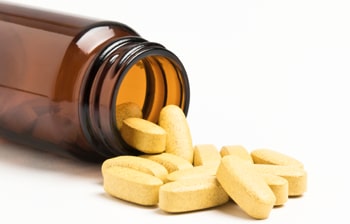With Irritable Bowel Syndrome (IBS) accounting for 10% of visits to GPs and one in five in the UK people develop IBS at some stage of their life, a new study has found that vitamin D may be the key to the debilitating disease.
Researchers from the University of Sheffield discovered a significant association between a patient’s vitamin D levels and the severity of their IBS symptoms, particularly the extent to which IBS affects their quality of life.
The study, which is the first of its kind, found that out of 51 IBS patients tested 82% exhibited insufficient vitamin D levels.
Lead scientist, Dr Bernard Corfe, from the University’s Molecular Gastroenterology Research Group, commented: “IBS is a poorly understood condition which impacts severely on the quality of life of sufferers. There is no single known cause and likewise no single known cure.
“Clinicians and patients currently have to work together and use trial and error to manage the condition and this may take years with no guarantee of success.
“Our work has shown that most IBS sufferers in our trial had insufficient levels of vitamin D. Furthermore there was an association between vitamin D status and the sufferer’s perceived quality of life, measured by the extent to which they reported impact on IBS on life.”
Dr Corfe added: “Our data provide a potential new insight into the condition and importantly a new way to try to manage it.
“It was clear from our findings that many people with IBS should have their vitamin D levels tested, and the data suggests that they may benefit from supplementation with vitamin D.
“As a result of this exploratory study, we’re now able to design and justify a larger and more definitive clinical trial.”
The role of vitamin D supplementation in other GI conditions is also supported by other studies that show associations between a vitamin D deficiency and inflammatory bowel disease.
Results of the study, which was published in December 2015 in the journal British Medical Journal Open Gastroenterology, suggest that IBS patients would benefit from vitamin D screening and possible supplementation.




